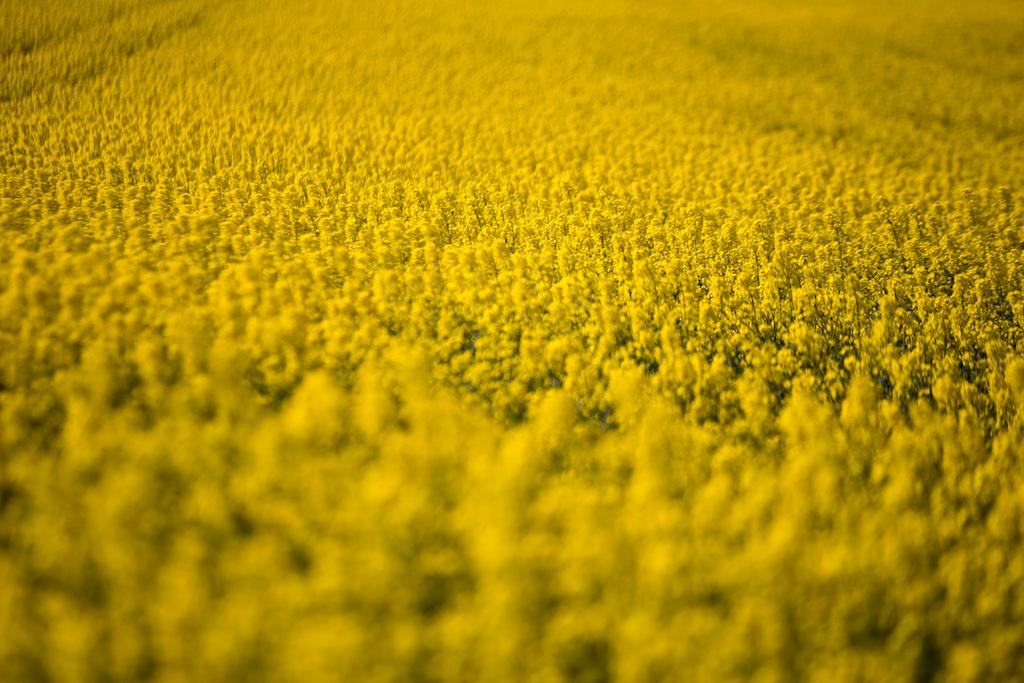Biofuels limited in Europe after EU parliament vote
A picture taken on May 6, 2013 of a colza field in Saint-Philbert-sur-Risle, in Normandy. The crop is used in cattlefeed, cooking oil, machinery lubricant and, increasingly, as a biofuel.
The European Parliament voted on Wednesday to limit the use of fuels made from food crops, or so-called "biofuels."
The use of biofuels was originally posited as an alternative to traditional energy sources, but lately has come under fire for contributing to climate change and pushing up food prices.
Lawmakers in the European Parliament in Strasbourg, France, limited the use of the fuels to 6 percent of total transport fuel demand in the European Union by 2020, Businessweek reported.
That's a higher cap than the European Commission proposed last year, of 5 percent. But it's lower than the 10 percent once allowed under the EU's commitment to increasing renewable energy sources.
The vote is said to be a major blow for the European biofuel industry, curbing any potential for growth they may have once had.
"First-generation" biofuels may eventually find themselves replaced by non-crop fuels made from algae or agricultural waste, Reuters said.
Biofuels like ethanol are made from foods like sugar and rapeseed, and are mixed with traditional fuels in order to reduce carbon emissions and reliance on oil.
Palm oil, which is also used, has been linked to deforestation in Asia.
The decision must still be approved by EU governments before it comes into law, the Wall Street Journal said.
Every day, reporters and producers at The World are hard at work bringing you human-centered news from across the globe. But we can’t do it without you. We need your support to ensure we can continue this work for another year.
Make a gift today, and you’ll help us unlock a matching gift of $67,000!
